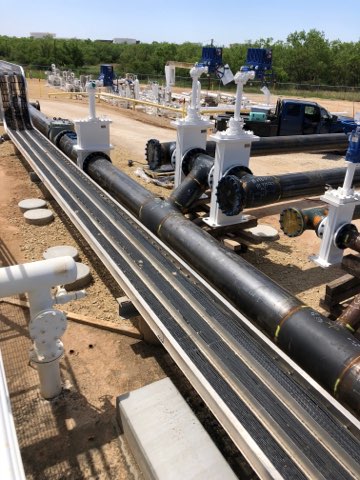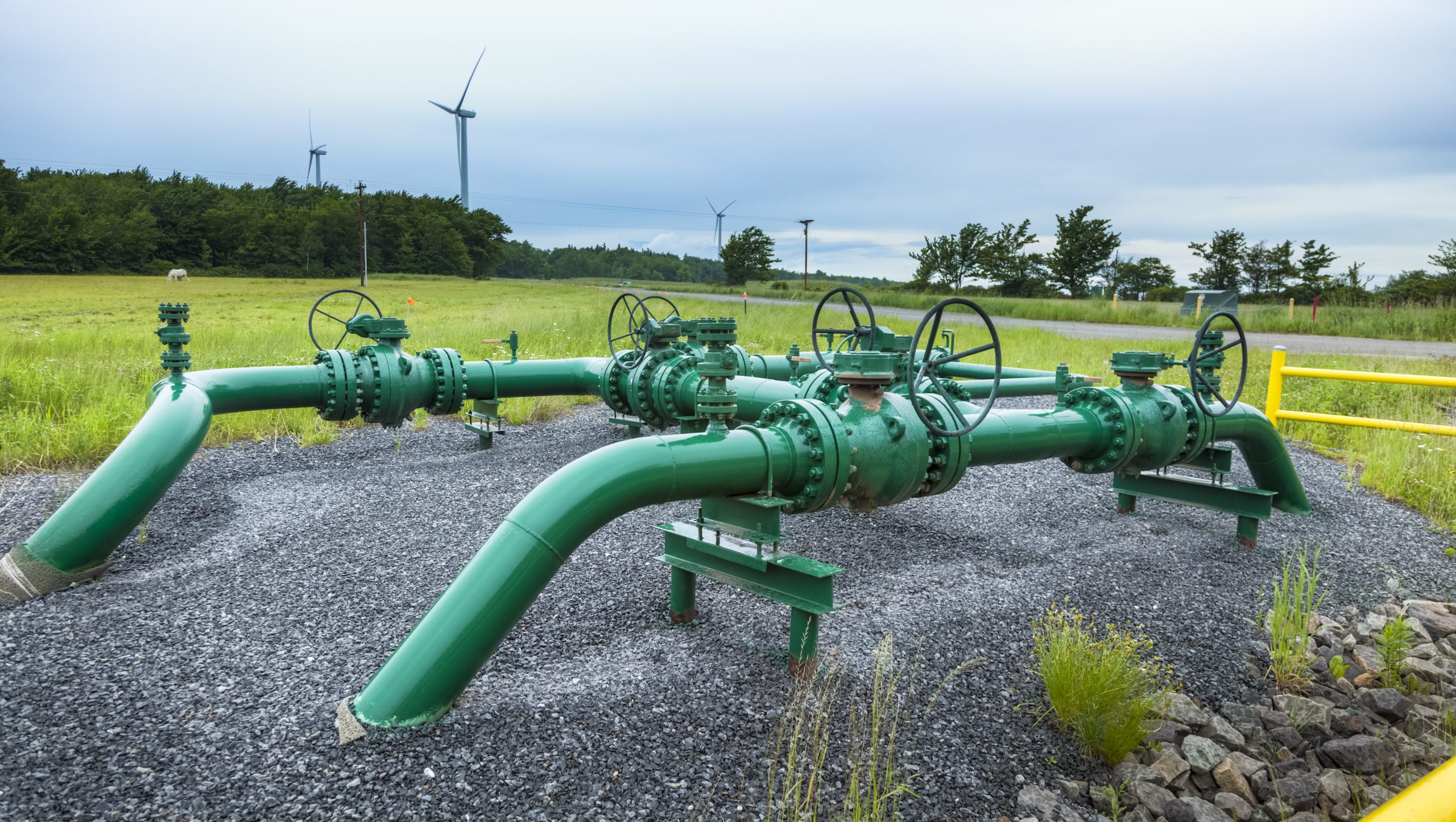How Long Should Pipeline Construction Services Take? Key Timeline Insights
Wiki Article
The Necessary Overview to Comprehending Pipeline Construction Solutions and Their Value
Pipeline Construction services are essential to the transportation of important resources such as oil, water, and gas. These services involve thorough preparation and execution, adhering to stringent safety and ecological criteria. As the market adapts to modern challenges, understanding its parts and effects comes to be significantly vital. What factors contribute to the expanding relevance of these services in today's economic situation? The adhering to areas will certainly check out these vital aspects.Overview of Pipeline Construction Providers
Pipeline Construction services incorporate a variety of tasks necessary for the installation and upkeep of pipelines made use of to carry various substances, including gas, water, and oil. These services are important for guaranteeing the reliable and safe motion of resources from one place to an additional. The process commonly begins with detailed planning and layout, which considers regulative needs, environmental factors to consider, and logistical challenges.Excavation and grading of the land are carried out to prepare the website for Pipeline setup once planning is complete. This is adhered to by the actual laying of the pipes, which involves welding or joining areas with each other to create a constant flow course. After installment, rigorous testing is done to assure integrity and safety. Maintenance solutions are additionally provided to address any type of problems that might emerge over time. In general, Pipeline Construction services play a crucial duty in sustaining infrastructure for energy and water distribution.
Secret Parts of Pipeline Construction
An effective Pipeline Construction task relies on a number of vital components that ensure the safe and effective installment of the Pipeline system. Initially, complete website evaluations are critical, as they recognize the geographical and ecological aspects that might influence Construction. Next off, the selection of proper products, such as pipes and fittings, is crucial for safeguarding durability and compatibility with the transported substances.In addition, progressed Construction methods, including trenchless modern technology and directional exploration, improve efficiency and minimize ecological influence. Efficient project monitoring is one more critical part, collaborating labor, equipment, and timelines to fulfill project objectives.
Furthermore, communication amongst stakeholders, consisting of engineers, professionals, and neighborhood authorities, assurances alignment on job specs and needs. Lastly, thorough top quality control procedures throughout the Construction procedure make sure conformity with market criteria and make the most of the Pipeline's functional life expectancy. Jointly, these components develop the foundation of a successful Pipeline Construction job.
Safety Specifications and Regulations in Pipeline Construction

Improving Regulatory bodies, such as the Occupational Security and Health Management (OSHA) and the Pipeline and Hazardous Products Safety Management (PHMSA), stated details requirements that govern Construction practices. These include protocols for equipment use, employee training, and emergency feedback treatments. By implementing these requirements, Construction business not only protect their staff members but additionally safe and secure public count on. Eventually, extensive precaution add to the long-term success of Pipeline projects, ensuring they meet both operational and environmental assumptions.
Environmental Considerations in Pipeline Projects

Environmental considerations are essential to the preparation and execution of Pipeline projects. These projects must analyze possible influences on communities, water sources, and local wildlife. Performing thorough environmental impact analyses (EIAs) is vital, permitting stakeholders to identify and minimize dangers before Construction begins.
Shielding sensitive areas, such as marshes and habitats, commonly requires applying particular layout features or different routing to lessen disturbance. Furthermore, Pipeline drivers are tasked with establishing strategies for stopping leakages and spills, which can have devastating impacts on the setting.
Engagement with regional areas is vital, as public problems can lead to job alterations that enhance environmental defense. Conformity with laws established by environmental agencies ensures that tasks meet sustainability standards, cultivating a balance between facilities demands and eco-friendly conservation. Ultimately, dealing with ecological factors to consider not just safeguards nature but also promotes community count on and job stability.
The Duty of Technology in Pipeline Construction
Technology plays a necessary duty in modern-day Pipeline Construction, enhancing performance and precision. Advanced surveying strategies permit precise planning and implementation, minimizing ecological influence and task hold-ups. In addition, the combination of automation and robotics enhances procedures, minimizing labor expenses and improving safety on Construction sites.Advanced Surveying Techniques
Advanced surveying techniques play a necessary duty in the successful execution of Pipeline Construction projects. These approaches utilize innovative innovation to ensure accurate mapping and analysis of the surface where pipes will certainly be mounted. Strategies such as Geographic Details Solution (GIS), LiDAR (Light Detection and Ranging), and 3D modeling enable designers to assess the landscape and envision, determining ecological worries and prospective barriers. By using these advanced devices, teams can boost precision ready and placement, substantially decreasing the risk of mistakes throughout Construction. In addition, real-time data collection enables instant adjustments and educated decision-making throughout the job lifecycle. Eventually, these evaluating advancements add to boosted efficiency, safety and security, and sustainability in Pipeline Construction efforts.Automation and Robotics

Economic Influence of Pipeline Facilities
Pipeline framework plays a vital role in facilitating and forming local economies profession. By giving a reputable methods of carrying oil, gas, and various other commodities, pipelines minimize transport costs and improve supply chain performance. This infrastructure draws in financial investment, boosts job development, and promotes financial growth in surrounding locations.In addition, the Construction and maintenance of pipelines add considerably to local economic climates, developing many employment possibility in different industries, from engineering to labor. The increase of work often results in enhanced spending in local companies, even more boosting economic activity.
Additionally, pipelines improve energy safety by making sure a steady supply of resources, which is vital for industrial operations and domestic needs. As regions become interconnected via Pipeline networks, they obtain accessibility to wider markets, enhancing competitiveness and financial strength. The economic impact of Pipeline framework is diverse, influencing both prompt regional economies and more comprehensive local development.
Future Fads in Pipeline Construction Solutions
The future of Pipeline Construction services is progressing in reaction to technical improvements, regulatory changes, and expanding environmental factors to consider. Advancements such as drones and robotics are simplifying evaluation and upkeep processes, boosting security and efficiency. Automation is positioned to reduce labor expenses and increase accuracy in Construction procedures. Furthermore, the raising emphasis on sustainability is prompting business to take on eco-friendly materials and techniques, aligning with international efforts to minimize carbon impacts.visit the website Regulatory structures are likewise adjusting to deal with ecological influences, promoting higher transparency and liability in Pipeline jobs. In addition, the combination of wise innovations, consisting of real-time surveillance systems, is expected to boost the integrity and performance of Pipeline networks. As energy demands shift towards eco-friendly resources, Pipeline Construction solutions will likely see a rise in projects associated with biofuels and hydrogen transportation. On the whole, these fads indicate a transformative period for the Pipeline Construction industry, focused on development and sustainability.
Often Asked Concerns
What Kinds of Pipelines Are Frequently Created?
Numerous sorts of pipes are generally created, consisting of oil, sewage, water, and gas pipelines - Pipeline Construction Services. Each serves distinct purposes, helping with the transport of necessary sources across regions while adhering to safety and ecological lawsThe length of time Does a Normal Pipeline Job Take?
The duration of a common Pipeline project varies greatly, frequently ranging from several months to a couple of years. Aspects influencing this timeline include project intricacy, governing authorizations, and ecological factors to consider that need to be dealt with.Who Regulates Pipeline Construction Companies?
Pipeline Construction companies are managed by numerous government, state, and regional agencies, consisting of the Pipeline and Hazardous Products Safety Management (PHMSA) and state public utility commissions, ensuring conformity with security and environmental standards throughout the Construction process.What Prevail Materials Utilized in Pipeline Construction?
Common products utilized in Pipeline Construction consist of steel, pvc, and polyethylene. Each product uses distinctive benefits such as longevity, versatility, and resistance to deterioration, making them suitable for numerous applications in moving gases and liquids.
Exactly How Are Pipeline Construction Expenses Estimated?
Pipeline Construction expenses are estimated by analyzing variables such as product expenses, labor rates, project intricacy, ecological factors to consider, and regulative demands (Pipeline Construction Services). Accurate price estimate assurances effective budgeting and project planning throughout the Construction procedurePipeline Construction solutions encompass an array of tasks necessary for the setup and upkeep of pipes utilized to carry various materials, including water, oil, and gas. A successful Pipeline Construction project counts on a number of key parts that navigate to these guys ensure the secure and efficient installation of the Pipeline system. Advanced checking techniques play a crucial function in the effective execution of Pipeline Construction jobs. Various types of pipelines are frequently constructed, consisting of oil, water, gas, and sewage pipelines. Pipeline Construction costs are approximated by assessing elements such as product expenditures, labor prices, job complexity, ecological factors to consider, and regulative needs.
Report this wiki page